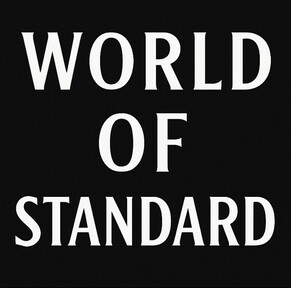Slovenia Plans to Attract Chinese Investors with “Panda Bonds”
01.11.2025Slovenia plans to issue government bonds denominated in Chinese yuan—so-called “panda bonds”—in 2025, with a total value of up to 5 billion yuan (around 700 million U.S. dollars). This move is part of the Slovenian government’s strategy to further open its economy toward the East, amid intensified global trade tensions and shifts in U.S. and Chinese industrial policies. Finance Minister Klemen Boštjančič confirmed in an interview with the Financial Times (reporters Ryan McMorrow and Wenjie Ding, Beijing) that Ljubljana aims through this step to attract Chinese capital, expand its investor base, and strengthen economic ties with China.
What Are “Panda Bonds”?
“Panda bonds” refer to bonds denominated in the Chinese currency (the yuan) issued by foreign issuers on the market of the People’s Republic of China. In other words, they are long-term securities that allow a foreign government or company to borrow money directly from Chinese investors, in yuan instead of euros, dollars, or another currency. The name “panda bonds” comes from the symbol of China—the panda—similar to how bonds in Japanese yen are called “samurai bonds,” and those in U.S. dollars “Yankee bonds.” This form of borrowing was first popularized by large multinational corporations, while some countries have only recently started to explore the Chinese debt market.
Why Is Slovenia Considering This Step?
The Slovenian government sees the issuance of panda bonds as part of a broader economic strategy to attract fresh capital from Asia and diversify its investor base. Boštjančič emphasizes that Slovenia wants to “broaden its investor base” and reduce reliance solely on European financial markets. In addition, Ljubljana is signaling its intent to establish closer relations with Beijing, despite Washington’s calls for European allies to take a tougher stance on China. According to the minister, smaller countries like Slovenia are particularly sensitive to disruptions in global trade caused by geopolitical conflicts. “Smaller countries like ours are much more exposed to disruptions in global trade caused by unprecedented tariffs from Washington and comprehensive export controls from Beijing,” Boštjančič warned, referring to the U.S.–China trade war. Such shocks, which are “something the world hasn’t seen for perhaps even 100 years,” pose a particular challenge for small, open economies like Slovenia’s.
In such an environment, Slovenia is seeking to “hedge” against the risks of trade wars and find new sources of financing outside traditional Western markets. “Even small EU members must cultivate direct relations with major countries like China,” Boštjančič stressed. He believes Slovenia cannot afford to wait passively following the EU’s policy but must proactively look for opportunities for cooperation with global economic powers. “We have intensified bilateral meetings with Chinese officials because we cannot wait. We must protect our interests,” the Slovenian finance minister said, clearly indicating the need for stronger bilateral ties with China for economic survival and growth.
Panda Bonds Attract Investors Worldwide
With this issuance, Slovenia joins a small group of countries that have chosen to borrow in yuan. Until now, panda bonds have been mainly used by large corporations seeking lower interest rates on the Chinese market and wanting to diversify both their debt currency structure and their investor base. However, in recent years, some states have also used this opportunity. For example, Portugal issued the first panda bond in the eurozone in 2019 (2 billion yuan, ~€260 million), while Hungary made its debut on the Chinese debt market as early as 2017. Outside Europe, Egypt issued panda bonds in 2023, becoming the first Middle Eastern and African country to borrow on the Chinese market. Still, the total value of sovereign “panda” loans remains only a small fraction of the global sovereign debt market, showing that this instrument is still more of an exception than a rule in state financing.
Financial analysts note that borrowing in yuan can be a double-edged sword: on one hand, it allows more favorable interest conditions and access to a large Chinese investor market; on the other hand, it exposes the issuer to currency risk and requires compliance with Chinese regulatory rules. For countries like Slovenia, which have a stable credit rating and want to strengthen their presence in the Asian market, panda bonds represent an interesting alternative financing channel. This also sends a signal of political will to deepen economic cooperation with China, which in the long term could open the door to other forms of investment and trade exchange.
Slovenia’s Borrowing on Foreign Markets
The planned issuance of yuan-denominated bonds is a logical continuation of Slovenia’s efforts to appear on unconventional financial markets. Ljubljana has already shown readiness for innovation in borrowing—it was among the first in Europe to issue a blockchain-based bond linked to sustainability goals. Also, last year Slovenia successfully debuted on the Japanese capital market by issuing its first “samurai” bond denominated in yen. That first issuance in Japan, in August 2024, was realized in two tranches (three-year bonds with a 0.75% coupon and five-year bonds with 0.89%), with a total nominal value of 50 billion JPY (about €311 million). Boštjančič stated that he hopes the issuance of panda bonds will replicate the success of the “samurai bonds” in Japan, where Slovenia managed to attract an entirely new investor base and borrow favorably in the Far East.
According to the minister, entering the Chinese capital market is seen as the logical next step after Japan and other successful ventures. He emphasizes that this should not be a one-off event but the beginning of a lasting Slovenian presence on the Chinese financial market. “This opens the market... There should be more [panda bonds] to follow, perhaps on an annual basis... This is not just a one-time event. We want to stay in that market,” Boštjančič said, suggesting that yuan issuances could become regular. Such a strategy of continuous presence would allow Slovenia to build Chinese investor trust over time and potentially secure better borrowing conditions in the future.
The Broader Context: Trade Tensions and Challenges for Europe
Slovenia’s decision to open financially toward the East comes at a time when European countries are under pressure from escalating trade tensions between the world’s two largest economies—the U.S. and China. After a period of relatively free trade, recent years have seen the U.S. imposing unprecedented tariffs on Chinese goods, as well as Chinese countermeasures such as export restrictions on key raw materials. This escalation of the trade war has led to disruptions in global supply chains and increased market uncertainty. European economies—especially smaller and highly open ones like Slovenia’s—are suffering from these upheavals, even though they are not direct participants in the conflict. “Countries like the U.S. and China can react very quickly and have no restrictions like the EU. Some of those restrictions—most of them—we imposed on ourselves,” Boštjančič observed, pointing out that the European Union often responds more slowly to changes due to internal rules and the need to coordinate positions.
In Europe, therefore, the question of how to maintain the competitiveness of domestic industries against China under asymmetric market conditions is becoming increasingly pressing. For instance, the European automotive industry is struggling to compete with Chinese electric vehicle producers, who enjoy strong state support and rapid market adaptability. Boštjančič believes that targeted subsidies could be part of a long-term strategy to strengthen European competitiveness but warns that Europe should not “just pour money into certain industries because that’s what the Chinese are doing.” In other words, the response to the Chinese economic model must be well thought out—a combination of investment in innovation, faster reactions to market trends, and preserving fair competition.
In this broader context, Slovenia’s turn toward the Chinese capital market can also be seen as part of European countries’ efforts to balance their position between the two powers. While major EU economies (such as Germany and France) seek to balance trade with China and loyalty to transatlantic partners, smaller countries like Slovenia are finding their own paths to secure economic prosperity with minimal risks. The issuance of panda bonds will not only provide Slovenia with a new source of financing but also deepen its relations with China, which could be an advantage in a world of growing divisions. As the Financial Times notes, Ljubljana is “hedging” against trade wars and laying the groundwork for broader cooperation with China, while remaining committed to its obligations within the EU and Western alliances.
/ / /
"Standard Prva" LLC Bijeljina is a company registered in Bijeljina at the District Commercial Court in Bijeljina. Company’s activities are accountancy, repurchases of receivables, angel investing and other related services. Distressed debt is a part of the Group within which the company repurchases the receivables, which function and are not returned regularly.
Lawyer’s Office Stevanović is the leading lawyer’s office in the region with the seat in Bijeljina. The LO abbreviation represents Lawyer’s Office of Vesna Stevanović and Lawyer’s Office of Miloš Stevanović.
Contact for media press@advokati-stevanovic.com or via telephone 00 387 55 230 000 or 00387 55 22 4444.




